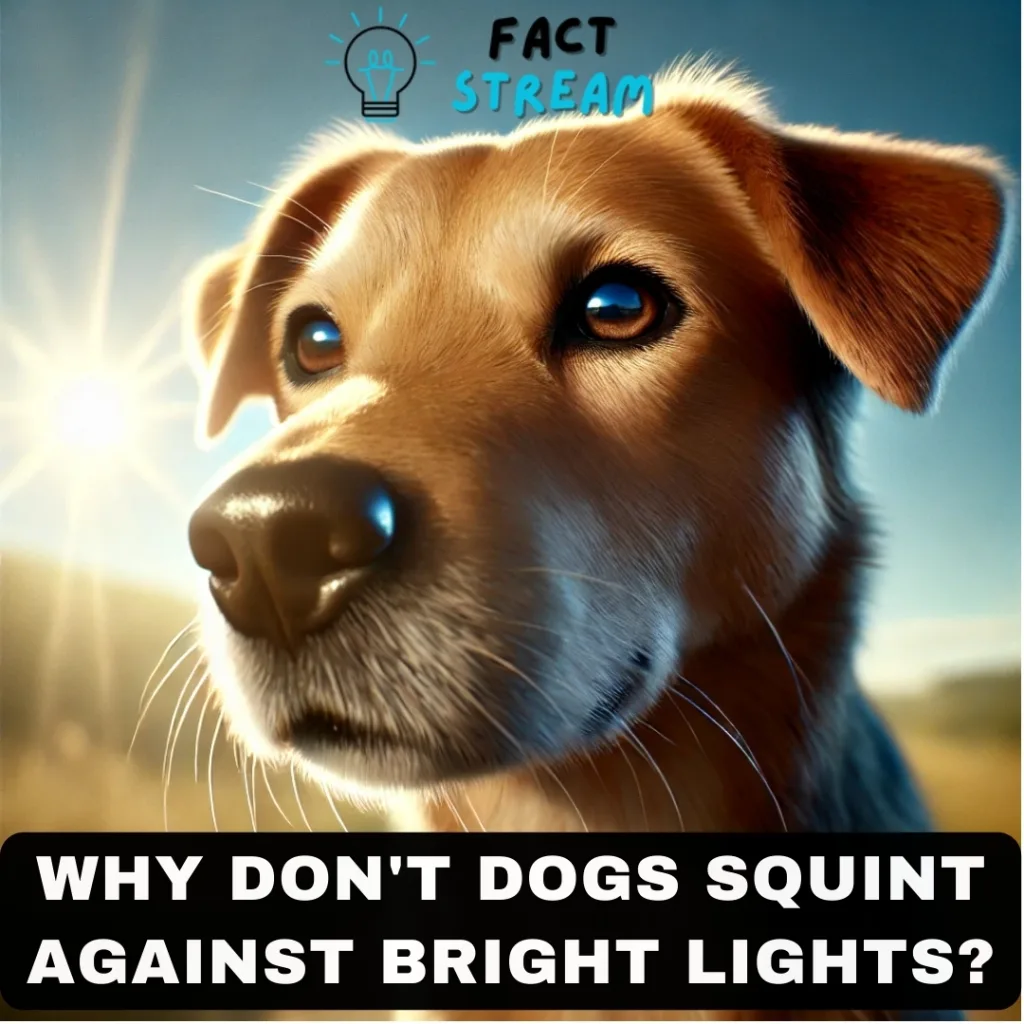Why Don’t Dogs Squint Against Bright Lights?
Have you ever noticed your dog staring directly at the sun or bright lights without even squinting? It might seem strange, but there are a few reasons why dogs don’t react to bright lights the same way humans do.
Dogs Have Different Eye Structures
Dogs have a special reflective layer in their eyes called the tapetum lucidum that helps them see better in low light. This layer acts like a mirror, reflecting light back through the retina and giving the light-sensitive cells a second chance to detect it. This is why dogs’ eyes seem to glow in the dark!
However, the tapetum lucidum also makes dogs more sensitive to bright light. While their eyes are designed to see well in dim light, bright sunlight can cause them discomfort.
Dogs Don’t Typically Stare at the Sun
Dogs are smart enough to avoid staring directly at the sun for extended periods. They instinctively know it’s uncomfortable. You might see your dog glance at the sun, but they’ll likely look away quickly.
That being said, dogs are still exposed to sunlight, which can lead to eye problems over time. UV light can cause discomfort and damage to their eyes, even if they aren’t staring directly at the sun.
Does Bright Light Hurt Dogs’ Eyes?
Yes, bright light can hurt dogs’ eyes. Prolonged exposure to bright light can cause various eye issues:
- Ultraviolet Light and Light Sensitivity: Canine eyes are sensitive to ultraviolet (UV) light, and prolonged exposure can cause discomfort and damage.
- Eye Discomfort and Squinting: Bright sunlight can cause eye discomfort, which may lead to conditions like iris atrophy where the iris deteriorates, making it difficult for the eye to adjust to changes in light.
- Chronic Superficial Keratitis (Pannus): Sun exposure can worsen this progressive disease affecting the cornea.
- Skin and Eye Diseases: UV light may also lead to the development of diseases like squamous cell carcinoma, a type of skin cancer. Prolonged exposure to bright light may lead to conditions such as glaucoma.
Do Dogs Dislike Bright Lights?
Most dogs wouldn’t intentionally stare at the sun. However, they do spend a lot of time playing outdoors, often exposed to bright sunlight and reflections.
Dogs’ eyes can be sensitive to intense sunlight and glare. If your dog squints or seeks shade on a sunny day, it’s a sign that the bright sunlight is causing eye discomfort.
Why Are My Dog’s Eyes So Sensitive to Light?
There are a few reasons why a dog’s eyes might be sensitive to light.
- Tapetum Lucidum: This reflective layer in their eyes helps them see in low light but also makes them more sensitive to bright light.
- Blue or Light-Colored Eyes: These eyes have less pigmentation than darker eyes, meaning they have less natural protection against UV rays.
- Breed: Some breeds, like German Shepherds and Border Collies, are more sensitive to sunlight than others.
- Medical Conditions: Certain medical conditions, such as cataracts, iris atrophy, and uveitis, can make dogs more sensitive to light.
Do Dogs Squint in the Sun?
Yes, dogs do squint in the sun if the bright sunlight is causing them eye discomfort. They may also seek shade. Squinting, even if it’s not constant, is a sign of eye discomfort.
Signs Your Dog is Bothered by Bright Light
Even though dogs don’t always squint, there are signs that they’re bothered by bright lights:
- Squinting: Even if it’s not constant, squinting is a sign of eye discomfort.
- Seeking Shade: Your dog might try to find a shady spot to escape the bright light.
- Excessive Blinking: This is another way dogs try to protect their eyes from bright light.
- Redness and Swelling: These are signs of eye irritation and could be caused by sun exposure.
- Discharge: Watery or thick discharge can indicate eye problems, potentially related to sunlight.
Protecting Your Dog’s Eyes From the Sun
Just because dogs don’t always squint doesn’t mean you shouldn’t protect their eyes. Here’s how:
- Provide Shade: Make sure your dog has access to shady areas when they’re outside.
- Consider Protective Eyewear: Dog goggles, like Rex Specs, are designed to protect dogs’ eyes from UV rays and bright light.
- Limit Sun Exposure During Peak Hours: Avoid going outside during the hottest part of the day, especially at high altitudes.
When to See a Vet
If your dog is showing any signs of eye discomfort, especially after sun exposure, it’s important to see your vet. Early detection and treatment are crucial for preventing serious eye conditions.
Remember, dogs may not always show obvious signs of eye problems, so regular vet checkups are essential for maintaining their eye health.


